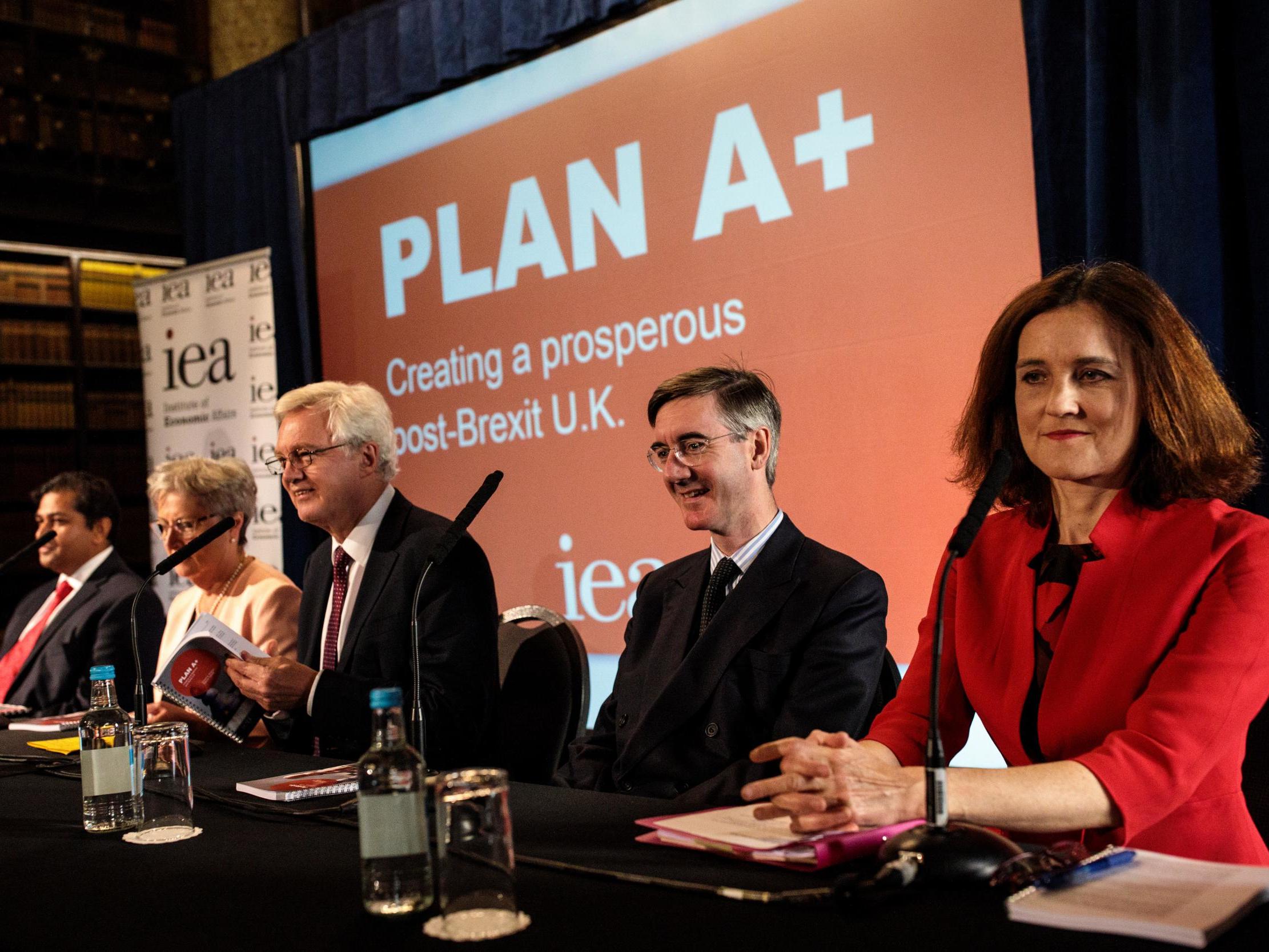Right-wing think tank Institute of Economic Affairs issued with formal warning after Brexit report ‘breached charity law’
Document criticising Theresa May's Chequers plan 'was not sufficiently balanced' and sought to influence government policy on 'an issue unrelated to the charity’s purposes', regulator finds

Your support helps us to tell the story
From reproductive rights to climate change to Big Tech, The Independent is on the ground when the story is developing. Whether it's investigating the financials of Elon Musk's pro-Trump PAC or producing our latest documentary, 'The A Word', which shines a light on the American women fighting for reproductive rights, we know how important it is to parse out the facts from the messaging.
At such a critical moment in US history, we need reporters on the ground. Your donation allows us to keep sending journalists to speak to both sides of the story.
The Independent is trusted by Americans across the entire political spectrum. And unlike many other quality news outlets, we choose not to lock Americans out of our reporting and analysis with paywalls. We believe quality journalism should be available to everyone, paid for by those who can afford it.
Your support makes all the difference.Right-wing think tank the Institute of Economic Affairs (IEA) has been issued with a formal warning over breaches of charity law following the publication of a Brexit report.
The Charity Commission‘s warning was handed down in relation to a publication which urged Theresa May to ditch her Chequers plan and which the regulator found was “not sufficiently balanced and neutral”.
The document, “Plan A+ Creating a Prosperous Post-Brexit UK”, was backed by prominent Brexiteers David Davis, Boris Johnson and Jacob Rees-Mogg when it was published in summer 2018.
The commission said the report “sought explicitly to change government policy on an issue unrelated to the charity’s purposes,” amounting to a breach of regulations on political activitiy and campaigning.
The IEA, which is registered as an educational charity, removed the report from its website after receiving a draft warning from the commission but said it was ”disappointed” with the report, which it claimed had “extremely widespread and worrying implications”.
The regulator’s warning said the IEA ”was not sufficiently balanced and neutral, as required by law from charities with educational purposes,” and also criticised the free-market think thank for only inviting speakers “who held a particular set of views” to the report’s launch event.
This risked “the public perception that the IEA is politically biased and has a political viewpoint on a key government policy,” the commission said.
Speakers at the launch event included Mr Davis, the former Brexit secretary, and Mr Rees-Mogg, the Conservative backbencher.
The commission said the event ”provided a platform” for Brexiteers to campaign against the government’s EU withdrawal proposals. This “clearly constitutes political activity” and was not “an inappropriate use of charitable resources”, it added.
The commission said the report “contravened the legal and regulatory requirements” for educational charities and “amounted to misconduct and mismanagement on the part of the trustees”.
David Holdsworth, deputy chief excecutive and registrar at the Charity Commission, said: “Charitable think tanks are charities and need to behave as such, including by complying at all times with charity law.
“Like all charities, they share a responsibility for protecting the reputation of charity as whole. While the law recognises the role charitable think tanks can play in promoting understanding and learning and inspiring debate, it also sets important limits, designed to protect what is unique and precious about charity.
“I hope that our official warning now encourages the trustees of the IEA to recognise and understand that they must run the organisation as a charity, and comply with charity law.
“The IEA remains subject to an on-going regulatory compliance case examining concerns about the trustees’ management and oversight of the charity’s activities.
Neil Record, chair of the IEA’s board of trustees, said the think thank was ”considering a range of options, as we believe this warning has extremely widespread and worrying implications for the whole of the think tank and educational charity sector”.
He added: “A precedent is being set: research papers – and their launches – which put forward policy proposals may now fall outside the parameters of what the Charity Commission considers acceptable activity. We will be working with the Charity Commission to address these points.
“Earlier this year, we asked a number of questions of the Commission relating to these regulatory matters and have yet to receive a response. We look forward to receiving such a response shortly to help inform our future activity.”
Join our commenting forum
Join thought-provoking conversations, follow other Independent readers and see their replies
Comments